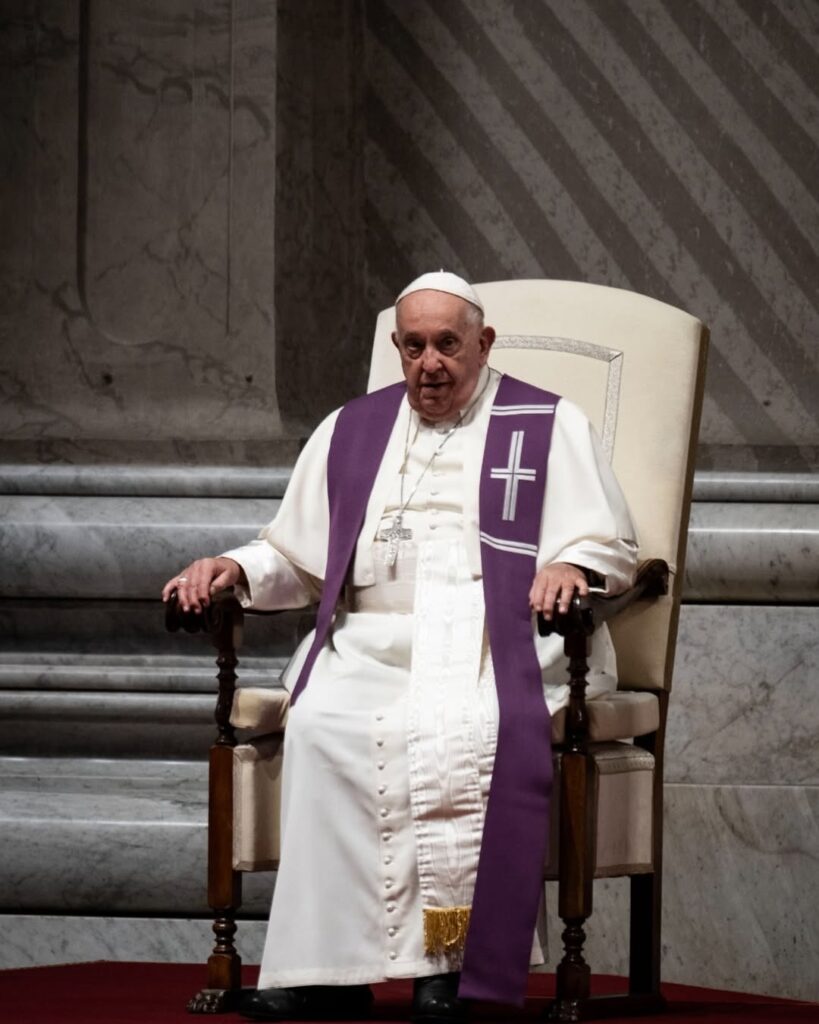Not just you and me
The path to peace of the soul passes through the sieve of conscience that tells us the good or evil done

With the enthusiasm of continuing to savor the narrative of Jon Fosse, Nobel Prize in Literature 2023, I have read the Trilogy (Seix Barral, De Conatus, 2023). The three short books that make it up were published together in 2014. They tell the story of Alida and Asle, two simple teenagers in an environment of fishermen, fish, boats, sea, coves, taverns, lodgings. The way of writing is very peculiar: a set of short, telegraphic sentences, the result of which is a compact story made up of snapshots that collect feelings, thoughts, and words repeated many times. The tone of the narrative is the same throughout the entire story, there is no trepidation, not even in the most dramatic moments: neither overflowing passion nor tormented consciences. There is a kind of resignation in some of the characters; in others, a trivialization of evil.
Sigvald, Asle’s father was a fisherman and violinist. He used to say that when “you were a musician, you were a musician and, once you were a musician, nothing could be done… and Father Sigvald said that by playing, pain could be relieved and transformed into flight, and that flight could be transformed into joy and happiness, and that is why you had to play, that is why he had to play and some of that pain must also be shared by others… because music elevates existence and gave it height, whether at weddings or funerals, or when people gathered to dance and celebrate” (p. 35). Asle had that same gift, “the destiny of the musician does not ask and whoever lacks property has to get ahead with the gifts that God has given him, that was the thing, that was life” (p. 36). Nice reflection on music.
Alida and Asle see and know each other from the beginning. Soon little Sigvald was born and Asle did not want to live like his father traveling from one place to the other, “he wanted to be with his people and not have to be with everyone else, all the others, that is not good for anyone, the good thing is to be with your loved ones, perhaps he was born with the destiny of a musician, but he wanted to fight that destiny, that was also why he had sold the violin, he was no longer a musician, now he was a father and husband” (p. 81). His father had told him that the musician’s destiny was to travel, to continually say goodbye to his beloved and to himself, “always giving himself to others, he said. Always make others whole, he said” (p. 37). Asle did not want that fate. His life would be Alide’s, his little Sgvald and him. Only them, although for this purpose he used immoral means that disfigured his idyllic love.
This last is what worried me the most about the novel. Alida is naivety almost in its purest form, she only has eyes for Asle, whom she follows closely, without asking questions: idealized love is stronger than all reasonable suspicion. The most disturbing character is Asle. To make it viable, the love for Alida kills those who prevent him from achieving this purpose. Each criminal act of hers does not burden her conscience in any way: she kills, erases, and they continue living her sacrificial and short life alongside her beloved and her little son, as if nothing had happened. In a very short time he is discovered and sentenced to hanging. A tragedy, wrapped in a lyricism very achieved by Fosse’s pen.
This lack of awareness brought to mind the movie Apocalypse Now (1979). Kurz wants to civilize the natives and fails. He is horrified by what a tribe does to the children that his people had vaccinated the day before: they had cut off their arms. He reflects and thinks that those who had carried out such a barbaric act were the same loving husbands and fathers when they arrived home. How was this double life possible? How is it possible to sleep peacefully without any remorse of conscience after having committed an atrocity? A disturbing question that human beings continue to ask ourselves throughout the centuries. Returning to the novel, how is it possible for Asle to maintain his angelic love for Alida without the reproaches of his conscience? There is some explanation and, surely, philosophy and psychology have answers, but the existence of this darkness of the human heart remains a mystery.
And Alida? It is difficult for him to take responsibility for Asle’s death, and he is not convinced that Asle committed all those crimes. She continues in her world and “thinks that she and Asle are still dating, that they are together, he with her, she with him, she in him, he in her, Alida thinks, and she looks at the sea and in the sky she sees Asle, she sees that the sky is Asle, and she feels the wind, and the wind is Asle, Asle is there, Asle is the wind, if it does not exist, it is there anyway, she is seeing it if she looks at the sea…, although she does not, she only sees him, she also sees herself in heaven” (p. 144).
Very personal memories of brief moments of happiness, truncated projects, extinguished hopes. Life goes on for Alida, she guards her love and seals her secrets with a bolt and padlock. She doesn’t want to know more. I also think about the many memories that form the plot of our narrative: laughter and tears, successes and failures, encounters and disappointments and much more. When these memories, with their joys and sorrows, have been kept in the heart – purified in the crucible of consciousness – they are true havens of peace. On the other hand, when they have not gone through that crucible, the poison that may be in them sours the heart and disturbs the spirit. The path to peace of the soul passes through the sieve of conscience that tells us the good or evil done. A love that suppresses conscience is not human and sooner or later it withers.
Related

Francis. The Human and Religious Imprint of a Papacy
Isabel Orellana
24 April, 2025
5 min

Cardinal Felipe Arizmendi: With the Risen Christ, There Is Hope
Felipe Arizmendi
24 April, 2025
6 min

You Didn’t Give Up
Exaudi Staff
23 April, 2025
2 min

Sing, pray, give thanks
Mar Dorrio
23 April, 2025
2 min
 (EN)
(EN)
 (ES)
(ES)
 (IT)
(IT)

